- Basic Accounting Interview Questions and Answers
- Technical Accounting Interview Questions
- General Interview Questions
- Tips for Answering Accounting Interview Questions
- Summing Up
Accounting Interview Questions: 55+ Top Questions Answered

Landing an accounting role requires more than just number-crunching prowess. A deep understanding of the industry, coupled with strong communication and problem-solving skills, is essential. This article delves into a variety of accounting interview questions, categorized for your convenience.
Accountants are vital to every organization, ensuring the accuracy and validity of all financial transactions. They work closely with the bookkeepers (who are responsible for recording and maintaining the company’s financial transactions and ensuring that they are in order). In short, accountants ensure that the company has robust financial health.
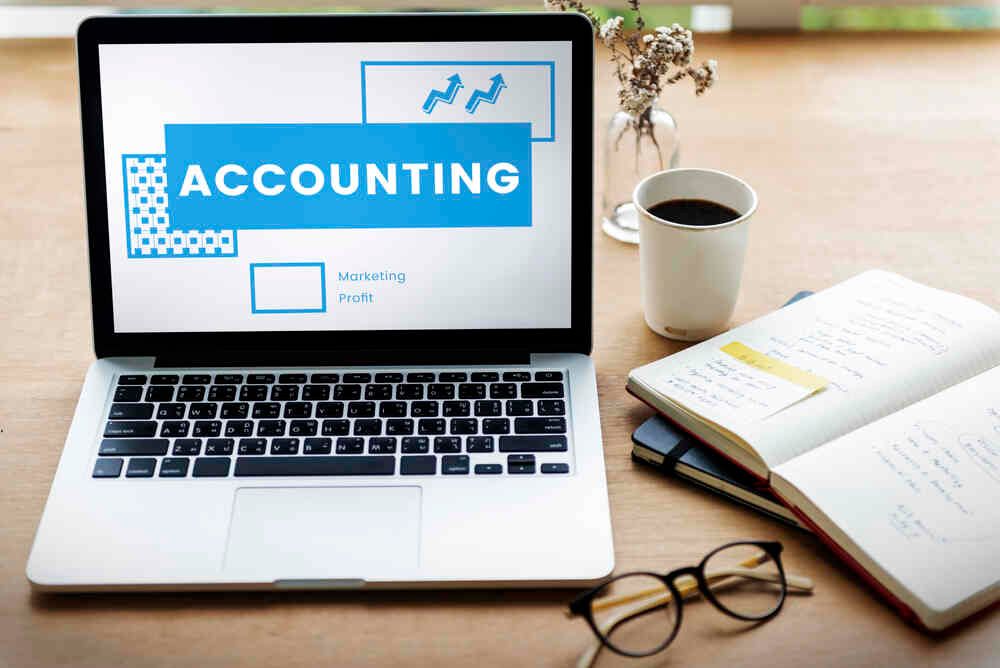
In this article, we will help you revise all the important topics for your accounting job interview through a well-curated list of accounting interview questions and answers. You will find basic accounting interview questions and answers, along with accounting questions on advanced topics. You will also find general interview questions and ways to answer them. Let’s begin:
Basic Accounting Interview Questions and Answers
Here are basic accounting interview questions that anyone applying for this role should be able to answer. These are not technical questions about the field but rather general knowledge questions about accounting.
Basic accounting questions with answers (General):
Q1. Name some accounting software programs that you are accustomed to.
This is one of the important accounting interview questions. The panel wants to know if you are experienced with any accounting programs. You can talk about programs that you have recently used or the ones you are most experienced with. Some popular accounting software programs are NetSuite ERP, Zoho Books, Gusto, FreeAgent, QuickBooks, etc.
It is advisable that you prepare one or two programs in detail and read about their latest updates. You can also discuss the program's qualities, such as its user-friendly interface, automated reminders for payments, customization, etc.
Sample Answer:
"In my academic training and internships, I've used several accounting software programs. I have extensive experience with QuickBooks for managing financial transactions and generating reports. I'm also proficient in Microsoft Excel for tasks like budgeting and data analysis, and I have exposure to SAP for handling accounts payable and receivable. These tools have helped me streamline accounting processes and ensure accuracy in financial reporting."
Q2. Can you tell us about the different types of accounting?
These types of accounting interview questions are directly from the books. Hence, revising the fundamentals of accounting and its types is highly advisable before you face your final interview. Following are a few types of accounting for your review:
- Administrative accounting focuses on an organization's administrative facets. It improves the implementation of strategy and achieves the company's established objectives. It is critical for forecasting and planning actions and resource utilization.
- Financial Accounting sums up and reports the business transactions that happen over a time period in a company. It is an important accounting method used in both the private and public sectors.
- Tax Accounting is one of the branches of accounting that is related to tax returns. It involves the rules used to generate tax assets and liabilities in the accounting records of a company.
- Cost Accounting is a type of accounting focused on companies involved in industrial activity. It analyzes the unit costs of sales and production in-depth and provides details about the company's production process.
- Management Accounting registers the company's financial information for short-term and long-term decisions. The primary difference between management accounting and cost accounting is that management accounting has a broader and more futuristic vision.
Q3. What are the common mistakes in accounting?
This is one of the most interesting and frequently asked accounting questions. You can list the following mistakes that are common in this domain:
- Communication gap between the company and the accountant
- Not maintaining a backup
- Not keeping/maintaining the receipts and invoices properly
- Dependence on manual accounting and less use of computerized accounting
- Not updating the accounting books from time to time.
- Combining personal accounts with company accounts
- Misallocating the resources
Q4. Why are Accounting Standards are mandatory?
Accounting Standards play a vital role in preparing an effective and accurate financial report. They help to ascertain the reliability, accuracy, and relevance of financial reports. Every company's financial documents are formulated according to Accounting Standards. This helps to maintain uniformity and allows the company to be compared with other players in the market who, too, follow the same mandatory standards. It also avoids misrepresentation.
Q5. What is the basic accounting equation?
The basic accounting equation represents the fundamental relationship between a company's resources, debts, and ownership. Here’s the basic accounting equation:
Assets = Liabilities + Owners Equity
It helps to determine the financial position of a business by balancing what it owns (assets), owes (liabilities), and what the owners have invested (equity).
Q6. What are the golden rules of accounting?
This question is one of those basic types of accounting interview questions that you must be well prepared with. The golden rules of accounting are as follows:
- Debit what comes in, credit what goes out
- Debit the receiver, credit the giver
- Debit all expenses and losses, credit all incomes and gains
Q7. What is GAAP?
It is a simple and common accounting interview question. The full form of GAAP is Generally Accepted Accounting Principles (GAAP). GAAP is issued by the Institute of Chartered Accountants of India (ICAI).
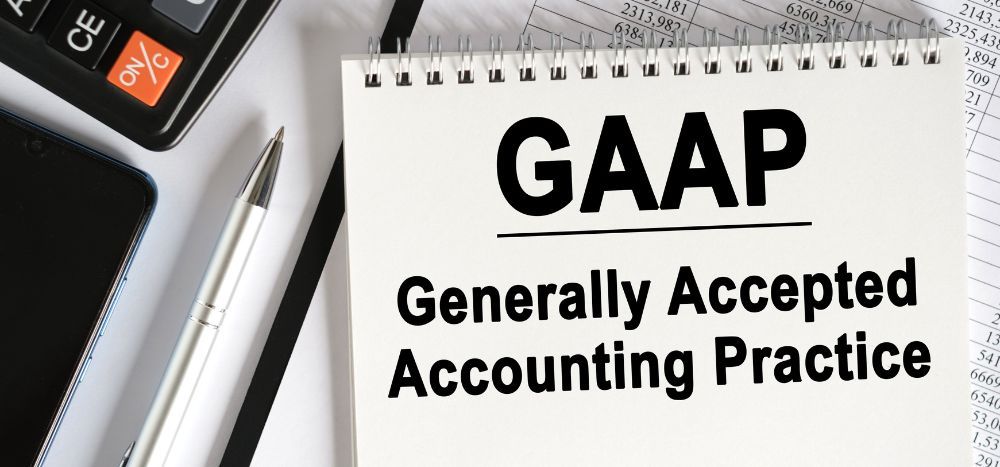
Q8. What is project implementation?
As an accounting professional applying for the current role offered by the company, you are expected to have a good understanding of project implementation. It can be defined as executing a plan into action. The key components of project implementation are identifying the need, generating and screening ideas, conducting a feasibility study, developing the project, implementing the project, and controlling the project.
Q9. Explain the difference between assets, liabilities, and equity.
Assets, liabilities, and equity are three key components of a company's balance sheet. Here is a table outlining the differences between them:
| Aspect | Assets | Liabilities | Equity |
|---|---|---|---|
| Definition | Resources owned by the company | Debts and obligations of the company | Residual interest in the assets |
| Examples | Cash, inventory, equipment | Loans, accounts payable | Common stock, retained earnings |
| Position | On the left side of the balance sheet | On the right side of the balance sheet | On the right side of the balance sheet |
| Relationship | Assets = Liabilities + Equity | Liabilities + Equity = Assets | Assets - Liabilities = Equity |
Assets represent what the company owns, liabilities are what the company owes, and equity is the residual interest in the assets after deducting liabilities. Understanding these distinctions is crucial for analyzing a company's financial health.
Q10. What is the purpose of a trial balance?
The purpose of a trial balance is to ensure that the total debits equal the total credits in a company's accounting system. It helps in detecting errors in the ledger accounts and ensures accuracy in financial statements. By listing all the accounts and their balances, a trial balance provides a quick overview of the company's financial position at a specific point in time. This tool is essential for accountants and auditors to verify the accuracy of the accounting records before preparing financial reports.
Q11. What is the difference between a journal and a ledger?
| Journal | Ledger |
|---|---|
| Records transactions as they occur | Summarizes transactions recorded in the journal |
| Chronological order | Grouped by accounts |
| First step in the accounting process | Second step in the accounting process |
| Provides detailed information | Provides a summary of financial transactions |

Technical Accounting Interview Questions
These are questions that test your technical accounting knowledge, covering both basic and advanced accounting concepts.
Basic accounting questions with answers (Technical)
Q12. Define insolvency.
This is a basic accounting question. By definition, insolvency is a situation when a company can no longer meet its financial obligations as debts become due. It occurs for various reasons that result in poor cash flow.
Q13. Tell us what you mean by working capital.
This is a pure definition-based accounting interview question. If defined in simple language, the concept of working capital deals with the capital resources needed by the company to operate in the short-term or day-to-day activities.
Working capital has two components:
- Current assets are those that can be converted into cash within one business cycle. These include both tangible and intangible assets. Stocks, mutual funds, bonds, exchange-traded funds, etc., are counted under current assets.
- Current liabilities are debt and other capital expenses that a company has to pay in one business cycle, such as dividends and capital leases. To calculate working capital, current assets are divided by current liabilities.
Q14. What is TDS?
This is one of the common accounting interview questions. TDS, or Tax Deducted at Source, aims to collect tax at the very source of income. Hence, income tax is reduced from the amount paid when making specified payments like salary, rent, professional fees, etc. It is reflected in the assets section of the balance sheet, right after the current asset.
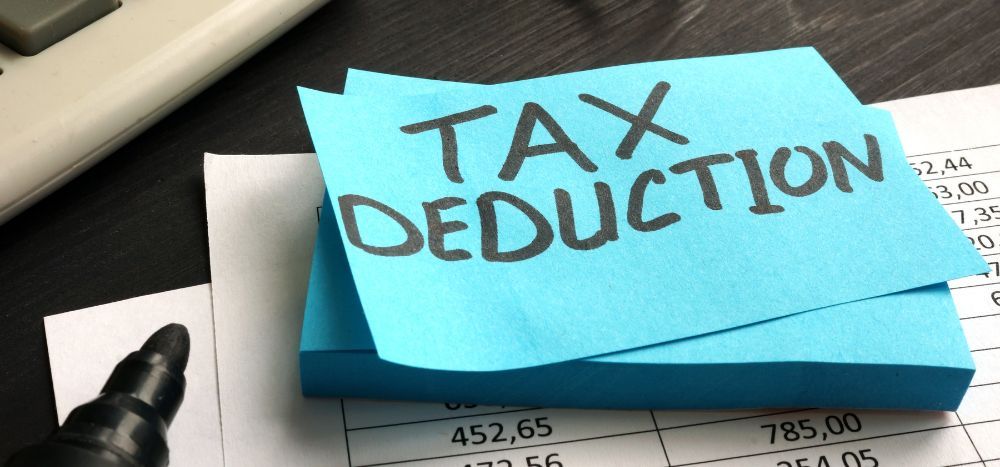
Q15. Can you differentiate between trial balance and balance sheet?
This is one of the accounting interview questions that intends to check your basic knowledge.
By definition, a trial balance is the list of all balances in a ledger account. It is used to check arithmetical accuracy in various accounting procedures, such as recording and posting. On the other hand, a balance sheet is a statement that reflects a company's liabilities, assets, and equity. It is used to determine a company's financial position.
Q16. What is the equation for Acid-Test Ratio in accounting?
This accounting interview question can be answered through the direct equation for the Acid-Test Ratio given in any accounting book. The Acid-Test Ratio can be explained as follows:
Acid-Test Ratio = (Current assets – Inventory) / Current Liabilities
Q17. Can you name some popular accounting applications?
For such basic accounting interview questions, you must be familiar with some popular accounting applications like Financial Force, Microsoft Small Business Financials, CGram Software, Microsoft Dynamics AX, Microsoft Accounting Professional, etc.
Q18. What are fictitious assets?
Such definition-based accounting interview questions are quite common. Fictitious assets are assets that have no tangible existence but are reflected in the financial statements. Their benefits are derived over long periods, such as goodwill, rights, expenses incurred for trademarks or copyrights, miscellaneous expenses, accumulated loss, etc.
Q19. Define Marginal Cost.
Marginal cost is defined as the change in the total production cost that arises due to increased quantity. It is the cost of producing the additional quantity.
Q20. What are Trade Bills?
Trade bills are financial instruments that are used in international trade transactions. They serve as a form of payment and are typically issued by the buyer's bank to the seller, guaranteeing payment for goods or services. Trade bills are often used when there is a time lag between the delivery of goods and the receipt of payment, providing a level of security for both parties involved in the transaction. These bills can be bought and sold in the secondary market, allowing for liquidity and flexibility in trade financing.
Q21. What are Assets Minus Liabilities?
Assets Minus Liabilities, also called Net Assets, stand for stockholder’s or owner's equity. It is calculated by subtracting the total liabilities of a company from its total assets. This figure represents the residual interest in the company's assets after deducting all its liabilities.
Net assets are an important financial metric as they provide an indication of the company's overall financial health and its ability to meet its obligations. A positive net asset value indicates that the company has more assets than liabilities, while a negative net asset value suggests that the company has more liabilities than assets.
Q22. Define accrual accounting and cash accounting.
Accrual accounting: Accounting method that records revenues and expenses when they are earned or incurred, regardless of when cash is exchanged. This means that revenue is recognized when it is earned, and expenses are recognized when they are incurred, even if the cash transactions have not yet occurred.
Cash accounting: Accounting method that records revenues and expenses only when cash is exchanged. This means that revenue is recognized when cash is received, and expenses are recognized when cash is paid out.
Q23. How do you calculate the current ratio?
The current ratio is calculated by dividing a company's current assets by its current liabilities. It is a measure of a company's ability to pay its short-term obligations with its short-term assets. The formula is:
Current Ratio=Current Assets/Current Liabilities
A higher current ratio indicates better liquidity and financial health.
Advanced Accounting Interview Questions and Answers
Q24. Can you give a suggestion to improve the working capital flow of a company?
This accounting interview question would require a detailed answer. Here is one expert answer that you can use as a reference.
To improve the working capital flow of a company, the stock on hand can be used as the key because the stock is something that can be controlled. This is because if we take other ways to improve the working capital flow, it might not be as easy. For example, If the debtors are pressured to pay the company quickly, it may be difficult as they can't be controlled directly. Also, they are separate legal entities and are actually the ones who give business to the company. Delaying payments from suppliers may also affect future business relationships and affect the goodwill of the industry.
Inventory management can also help improve a company's working capital. Stock turnover rates must be kept high, and overstock must be avoided at all costs.
While the above answer can help you get an idea of how you can tackle a basic accounting interview question on working capital flow, it is recommended that you read the topic in detail while preparing for the interview.
Q25. How can accounting accuracy be maintained?
As an accountant, a candidate is expected to be trained enough to work with utmost accuracy. Hence, this accounting interview question is asked. You may answer this accounting question in the following manner:
Maintaining accounting accuracy is a critical activity. If not done properly, it can lead to a huge loss for the company. Computerized accounting can help maintain accuracy. It can be done with the help of some available accounting tools that can be useful in limiting any potential and in case any such errors crop up, they can be addressed quickly. MS Excel is an important example of one of the accounting tools. Here are some other ways of maintaining accounting accuracy.
- Identifying the revenue streams
- Preparing tax returns to steer clear of penalties
- Preparing financial statements
- Keeping a close watch on invoices and receipts
- Keeping an eye on deductible capital expenses
Q26. Can you give some points where MS Excel helps in accounting?
As an accounting professional, you might have been using MS Excel for a long period. However, it’s recommended to keep some of the tool’s advantages at your fingertips - especially those that might have come in handy in a previous role or project. The following can be some advantages that you can state for this accounting interview question:
- MS Excel saves a lot of time. It allows you to format, filter, and analyze huge amounts of data in seconds.
- Another advantage is its customization. It can be used to create reports and charts easily. It can easily be used to reformat and rearrange data.
- It has ready-to-use templates that come in handy.
- Excel can also be used to keep track of financial records and check the source that generates cash flow.
Q27. Can you explain a few ways to estimate bad debts?
Since bad loans are one of the commonly discussed topics these days, this is one of the most probable accounting interview questions that you can face.
Bad debts are loans that are no longer deemed recoverable. They can be estimated using well-known methods, such as aging analysis, calculating the percentage of outstanding accounts, and the percentage of credit sales.
Q28. What is deferred tax liability?
Deferred tax liability is the amount of taxes for which a company has not paid the full amount but is expected to be paid in the future. However, it doesn't account for a company's unfulfilled tax obligations; it is actually the payments that are not due yet. It could signify that an organization/company may pay more tax in the future owing to current transactions.
Q29. Do you have any idea about the bank reconciliation statement?
It is a form that allows individuals to compare their personal bank account records to that of the bank. A Bank Reconciliation Statement is prepared when there is a difference between the passbook balance and the cashbook balance. It is prepared by an accounting professional or individuals coming from an accounting academic background.
Q30. Can you share some examples of fixed assets that are recorded in the balance sheet?
You need to have good accounting knowledge to answer this accounting interview question. You can start by saying that fixed assets are the ones that are not consumed in one fiscal year. They are long-term assets that the company is utilizing for its production of goods and delivery of services. For example- land, machinery, company vehicles, furniture, or any other equipment that the company needs. These assets are essential for the operation of the business, and their value is expected to be recovered over time through their use or future cash flows.
Q31. What are the different stages of the Double Entry Accounting System?
A double-entry accounting system involves three different stages:
- Recording the transactions in accounting systems.
- Preparation of a trial balance in respective ledger accounts.
- Preparation of final documents and closing the books of accounts.
There can be some disadvantages to this system, such as it may be hard to find the errors. In case any error arises, the solution to it is clerical labor intensive.
Q32. Can you list some examples of liability accounts?
Liability accounts show how much a company owes to other entities. These are categories within the company's account books. Some examples of liability accounts are accrued expenses, accounts payable, bonds payable, customer deposits, income tax payable, instalment loans payable, interest payable, lawsuits payable, notes payable, salaries payable, mortgage loans payable, warranty liability, etc.
Q33. Can you tell the basic difference between accounts receivable and deferred revenue?
The key difference between accounts receivable and deferred revenue is that accounts receivable is the cash yet to be received for products or services already sold or delivered to customers. On the other hand, deferred revenue, also called unearned revenue, is the cash or advance payment received from customers for services or goods to be delivered in the future.
Q34. What is a compound journal entry?
In the accounting process, compound entries are just like other accounting journal entries. The only difference is that compound entries contain one debit, more than one credit, or more than one of both debits and credits. In short, they are entries where more than one account is debited or credited.
Q35. Define depreciation and the types of depreciation methods.
As an accounting manager, one must be aware of depreciation. It is one of the most basic accounting questions asked in the interview. Depreciation is the decreasing value of the recorded cost of any asset that is in use. Calculating depreciation is necessary because it helps to find a business's net income in every accounting period.
Examples of depreciating assets are equipment like computers, vehicles, manufacturing machinery, etc. Types of depreciation methods are:
- Straight-line depreciation
- Double declining balance
- Units of production
- Discounted cash flow
- The sum of years digits.
It must be noted that straight-line depreciation is the most common and simplest method to calculate depreciation.
Q36. What is an internal audit?
Internal audit is a commonly heard term amongst people related to accounting as well as among those who are not related to this work. Internal audit is a department within the company that formulates audit reports to evaluate a company's corporate practices and provides unbiased and independent reviews of the system.
Internal audits check the effectiveness of organizational standards and whether employees follow them. They are performed annually, monthly, or quarterly.
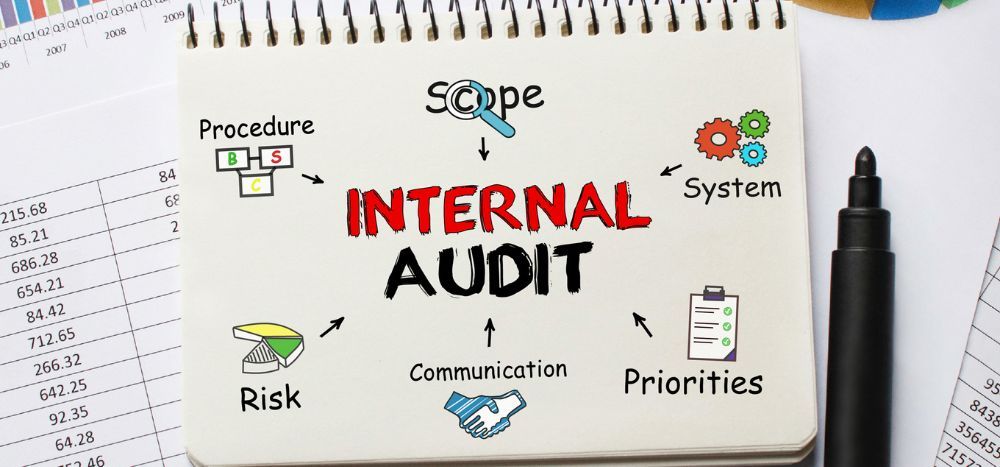
Q37. Name some intangible assets.
Since accounting often discusses intangible assets, this is one of the important accounting interview questions. Along with understanding intangible assets, one must also have a brief idea about IPR or Intellectual Property Rights since these are quite important for businesses. Here are some of the intangible assets that a company might own.
- Patents: Exclusive rights given for inventions that can be products, processes, or new technical solutions to prevalent problems.
- Copyrights: It is the legal right granted to the creator of an original work who has the right to control the production and selling of a creative work such as a play, book, or film.
- Trademarks: A recognizable symbol that denotes a particular product and helps to identify the manufacturer of the product or a service provider.
- Brand names: Names company owners apply to their products or services. They help customers differentiate between the products of one company from another.
- Domain names: The address on the internet helps you access your website.
Q38. How do you define a bad debt expense?
Bad debt expense is defined as a company's accounts receivable or the expense incurred by the company that is assumed to be no longer collectible.
Q39. Can you define Revenue Recognition and Matching Principles?
These are important concepts of accounting and need to be revised well by the candidate. The Revenue Recognition Principle suggests that no matter when the amount is paid, the revenue has to be recognized and recorded when it is realized and earned.
The Matching Principle suggests that companies must report expenses on their income statements at the time the related revenues are earned and are associated with the accrual basis of accounting.
Q40. Can you name the different accounting concepts?
Interviewers often ask about different accounting concepts. To answer this question, you must be aware of these concepts. Some of the most popular accounting concepts are Business Entity, Accounting Period, Dual Aspect, Matching, Money Measurement, Cost, and Going Concern.
Q41. What do you mean by owner’s equity?
Equity refers to the amount of money that would be returned to all the shareholders of a company if all of the assets were liquidated. Similarly, owner’s equity refers to the owner’s rights to the business's assets. It is also called the capital of the business and can be calculated by removing the creditor's equity from the total equity.
Q42. What are debit notes and credit notes?
A debit note is defined as a commercial document that a seller uses to bring the purchaser's current debt obligations to the notice. It can also be called the document that is produced by a purchaser to the seller when returning goods purchased on loan. A credit note is a receipt given to a buyer who has returned a product. It indicates that the account of the buyer is being credited for the purpose indicated.
Q43. What do you mean by Contingent Liabilities?
Contingent Liabilities are potential obligations that may or may not become actual liabilities. For example- If a company called ABC is sued by some other entity (say company B) for some reason, the company could be said to have a contingent liability. In case the company ABC is found guilty, it will have to pay a certain sum of money to company B. However, if not found guilty, the company ABC will not have any actual liability. In other words, no money would be paid to company B.
Q44. What is GST?
Since the introduction of GST, or Goods and Service Tax, in the Indian tax system, this question has become a hot favorite among interviewers.
As per definition, GST is an indirect tax charged on the value of the service or product sold to a customer. Thus, the customer pays the tax to the seller, who thereby deposits the GST amount to the government.

Q45. Can you mention some common errors in accounting?
Some common accounting mistakes can be Errors in the original entry, Errors of omission, Errors in entry reversal, Errors in accounting principle, Errors in commission, Compensating errors, Errors in duplication, etc.
Q46. Define and explain the three financial statements.
This is another common interview question that you need to be aware of. Financial statements are records of a business's financial activities. They show an entity's position.
The three financial statements are- balance sheets, income statements, and cash flow statements. The basic difference between them is that a balance sheet tells about the company's assets, liabilities, and shareholder equity. A cash flow statement outlines the source from where the cash is coming, including investing, operating, and financing activities. The income statement, on the other hand, provides a detailed list of company expenses and revenue.
Q47. Explain EBITDA.
EBITDA stands for Earnings Before Interest, Taxes, Depreciation, and Amortization. It is a financial metric used to assess a company's profitability and operational performance. It measures earnings from core operations before interest, taxes, depreciation, and amortization. By excluding these factors, EBITDA allows for a comparison of operating performance across different companies. It is commonly used to evaluate cash flow and assess value. However, it should be used alongside other metrics for a comprehensive analysis.
Q48. What does scrap value mean in accounting?
Scrap value in accounting refers to the estimated residual value of an asset at the end of its useful life. It represents the amount that could be obtained from selling or disposing of the asset after deducting any disposal costs.
General Interview Questions
These interview questions are usually subjective or behavioral, intended to judge your personality and soft skills. This category may also include certain situational accounting interview questions where the interviewer wants to understand your perspective on situations that could commonly occur in your role:
Q49. Tell us about yourself
This is not an accounting question but is usually asked right at the outset of the interview. The question is intended to break the ice and get a peek into your personality. You can take advantage of this question and steer the conversation in a particular direction. For example, you can talk about your life, what made you choose a career in accounting, and anything else that might leave a good impression on you in front of the interview panel.
Before the interview, it is best to read the job description properly. Be sure about the points that made you interested in the current role. This will help you sneak in a few qualities from your personality that are in sync with the job description. This would be a great way to introduce yourself to the panel.
Learn how to respond to this question effectively in this detailed guide.
Q50. Why do you want to work for us?
This accounting interview question is your chance to let the interviewers know how well you know about the company. You must conduct thorough research about the company before your interview and understand its area of work, clientele, company size, culture, goals, and objectives. Good research about the company not only shows keen interest of the candidate in the company but also reflects positively about the candidate. Not to mention, it helps formulate the right response to why you want to work here. Hence, keep yourself updated and well-prepared.
Q51. What do you think is important in accounting software - price or functionality?
This question might seem like an open-ended question, but it isn’t. To answer this question effectively, you can say that both of these attributes can't be compared, and with a proper strategy, there would be no need to choose between the two. This strategy shows you understand that the price of software does not always determine its functionality and vice versa.
By performing good research one could select an economical software that is as effective as an expensive one. This will not only bring down a company's operational costs but will also make the accounting process more sustainable. Also, there would not be any need to compromise quality because of cost.
Q52. Can you reduce the probability of human errors in the accounting department?
This is an analytical question. As an accounting professional, you are expected to analyze and assess everything in detail. Through this question, the interviewer intends to know your critical thinking skills and your capacity to analyze a situation. To answer this question, you can use examples from your personal experiences or a previous company as well.
You could say that human error in the accounting department can only be reduced if each team member can effectively contribute towards working accurately. For this, companies need to ensure that their employees are not overloaded. They need to be assessed for their strengths and weaknesses and allotted work accordingly. Routine meetings and regular training can help the staff to work on their shortfalls and this may help to prevent human errors to some extent.
Q53. What is the top challenge facing those in the accounting field?
This is one of the creative accounting questions that the interviewer expects every member of the accounting team should know. The interviewer wants to judge your knowledge of the accounting industry and the challenges that accounting professionals face on a day-to-day basis. This is an open-ended question, and hence, there is no right or wrong answer. However, have a logical explanation for your answer.
To answer this question effectively, you need to keep updating your knowledge through news, expert opinions, or publications. For example, Changing tax codes could be one issue you can talk about. Since the tax codes keep changing, it becomes a challenge for the accounting team. As soon as one familiarizes with one set of tax codes, some new ones come up, thus changing the accounting trends.
Q54. Have you worked on an accounting process that you ended up improving? If yes, describe how you went about it.
This question can be difficult to answer if you’re new to the field. However, the purpose of this question is to understand your critical thinking skills and approach to challenging situations. Thus, you can share an instance that demonstrates these qualities. Even if you have no professional experience, use an example from your internship or college.
Here’s a sample response for experienced professionals:
In my previous role as an accountant, I identified a manual process for reconciling bank statements that was time-consuming and prone to errors. To improve this process, I proposed implementing an automated bank reconciliation software. I researched different software options, compared their features and costs, and presented my findings to the management team. After receiving approval, I worked closely with the IT department to integrate the software into our accounting system. This automation significantly reduced the time required for bank reconciliations and minimized errors, improving overall efficiency and accuracy in our accounting processes.
Q55. Can a company with positive cash flows be in grave trouble? How?
Yes, a company with positive cash flows can still be in grave trouble. This can happen if the company has high levels of debt or if its expenses exceed its revenues. Even though the company may have positive cash flows, it may not have enough cash to cover its debts or meet its financial obligations. This can lead to bankruptcy or insolvency, causing the company to be in serious trouble despite having positive cash flows.
Q56. What role does documentation play in accounting?
Documentation plays a crucial role in accounting as it provides a record of financial transactions and helps ensure accuracy and transparency. It includes documents such as invoices, receipts, bank statements, and financial reports. By documenting these transactions, accountants can track and analyze the flow of money, identify errors or discrepancies, and provide evidence for audits or legal purposes. Documentation also helps in making informed decisions, preparing financial statements, and complying with regulatory requirements. Overall, documentation is essential for maintaining the integrity and reliability of accounting records.
Tips for Answering Accounting Interview Questions
Now that you’ve gone through the basic accounting interview with answers for freshers, along with advanced and general questions, here are some top tips to keep in mind:
- Prepare by researching common accounting interview questions
- Familiarize yourself with the company's accounting practices and policies
- Highlight your technical accounting skills and knowledge
- Provide specific examples of your past accounting experience and accomplishments
- Demonstrate your ability to analyze financial data and make informed decisions
- Show your attention to detail and accuracy in handling financial information
- Emphasize your communication and teamwork skills, as accounting often involves working with others
- Be prepared to explain any gaps in your employment history or changes in career paths
- Ask thoughtful questions about the company's accounting department and future opportunities
These tips can help you better answer your accounting interview questions. Ultimately, it’s all about practice and research to perfect your answers.
Summing Up
If you are aiming to get a job in the accounting domain, a quick review of the important and commonly asked accounting interview questions will certainly give you an edge over others.
Accounting is a stable career path. If you are aiming to get hired by a good accounting firm and work with the most experienced and trained professionals, a good understanding of the most important interview questions is indeed important. So, brush up on your communication skills, update yourself regarding the latest accounting trends, and prepare well for your next interview call.
You may also like to read:
As a biotechnologist-turned-writer, I love turning complex ideas into meaningful stories that inform and inspire. Outside of writing, I enjoy cooking, reading, and travelling, each giving me fresh perspectives and inspiration for my work.
Login to continue reading
And access exclusive content, personalized recommendations, and career-boosting opportunities.
Subscribe
to our newsletter












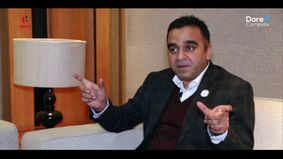

Comments
Add comment